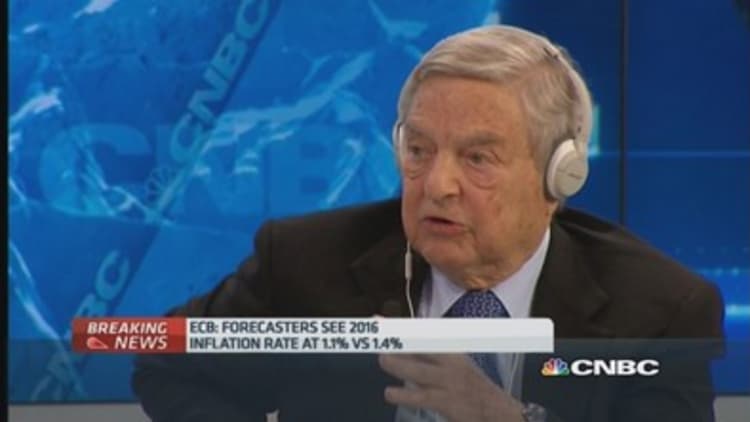The price of the Russian ruble fell sharply against the U.S. dollar Monday after fighting increased in the eastern part of Ukraine and U.S. President Barack Obama raised the prospect of further sanctions against Moscow.
The greenback appreciated to 65.5660 against the Russian currency in morning trade on Monday after ending Friday's session at 64.0100. This was a 2.4 percent jump during the morning session and was due to an "increased sanctions risk" and the lower price of oil according to a note by Timothy Ash, head of emerging market research at Standard Bank. Russian stocks on the Russian MICEX index were lower by 2.5 percent at 9:30 a.m. GMT on Monday.
The weekend saw heightened tensions in the region of Mariupol with the current cease-fire being put further under strain following a rocket attack Saturday. Seven Ukrainian serviceman have been killed in the last 24 hours, according to the military spokesperson Vladislav Seleznyov who was quoted by Reuters, with 24 being wounded.
Read More
The rocket attack in the Ukrainian city has been strongly condemned by United Nations Secretary-General Ban Ki-moon who said Saturday that the attack appeared to have been launched indiscriminately into civilian areas, constituting a violation of international humanitarian law.
Speaking on a trip to India, Obama said Sunday that the U.S. would promote a "core principle" of making sure that "large countries don't bully smaller countries" and said it would continue to support Ukraine's ability to control its own territory.

"We are deeply concerned about the latest break in the cease-fire and the aggression that these separatists -- with Russian backing, Russian equipment, Russian financing, Russian training and Russian troops -- are conducting," he said.
"I will look at all additional options that are available to us short of a military confrontation in trying to address this issue."
Ukraine was thrown into turmoil at the start of last year, after protests between anti-government and pro-EU demonstrators led to a change of leadership. Tensions on the streets of Kiev turned into military conflicts on the eastern border, with Moscow accused of aiding pro-Kremlin rebels in the region.
Read MoreMerkel: Russia 'violated' EU with Ukraine actions
From mid-April to mid-December last year, over 4,700 people were killed and 10,300 were wounded in the fighting, according to the latest statistics by the United Nations. Russia annexed the southern Ukrainian area of Crimea in March 2014 and, as a result, has faced tough economic sanctions from Western nations.
Sergey Lavrov, the foreign minister of Russia, responded to the increased fighting on Monday, accusing Kiev of disrupting the peace process and saying that such attempts would have no prospects, according to the Russian Interfax news agency.
Meanwhile, the escalation of violence has led to European Union foreign ministers to meet this Thursday for an extraordinary foreign affairs council session. Obama added that the U.S. will be in close consultation with our international partners, and particularly European partners, to assure that they stay in "lockstep with us on this issue."
Standard Bank's Ash believes that there is now little hope that sanctions against Russia will be quickly lifted, if at all this year, and suggests that it is more likely that further sanctions will be rolled out.
"Obama again signaled that (further sanctions) would need to be in conjunction with the U.S.' European allies, which would suggest a slow process and no quick move up the sanctions gears," he said.


